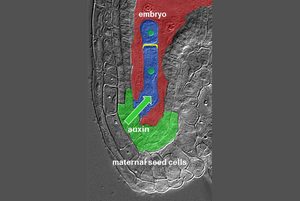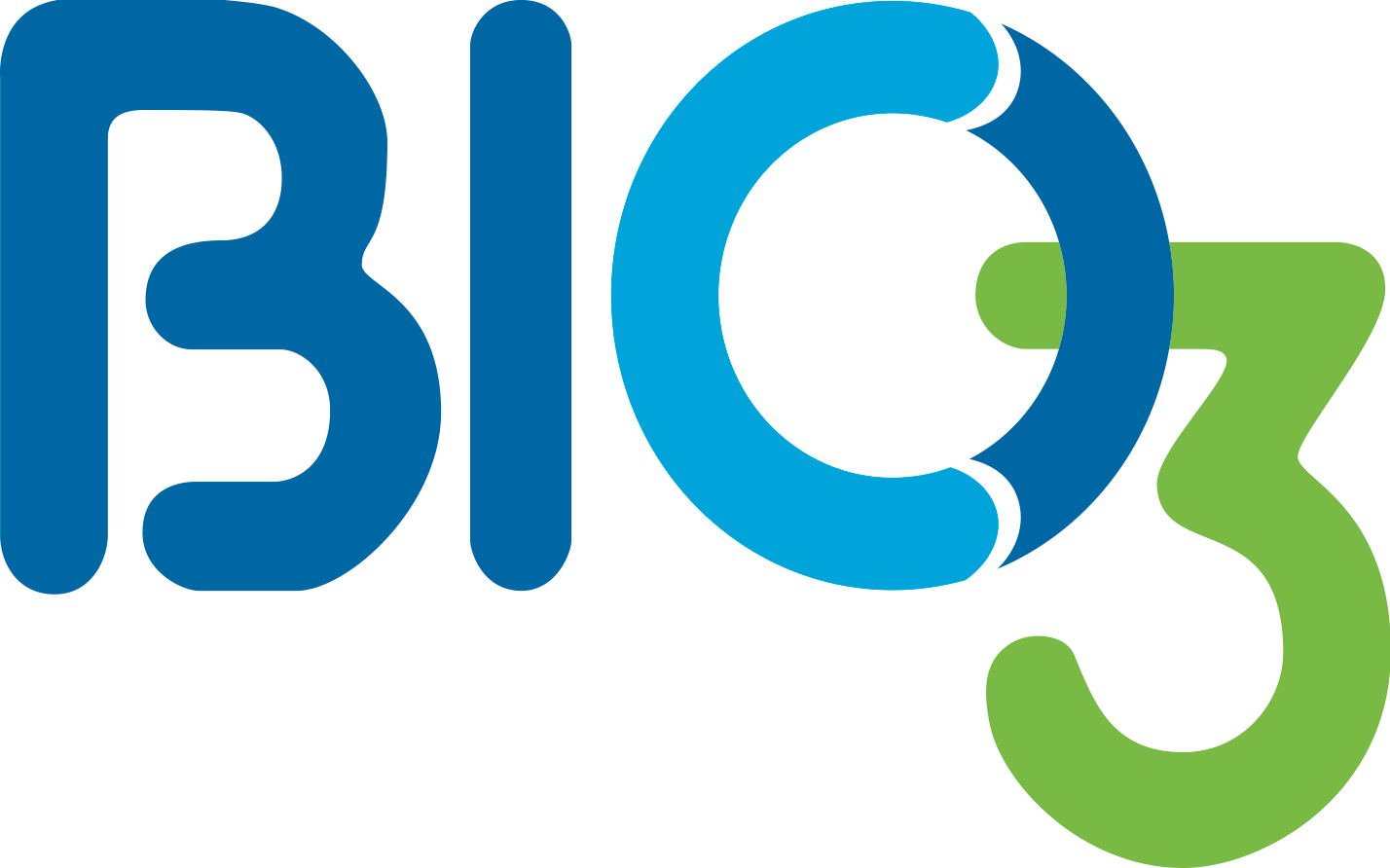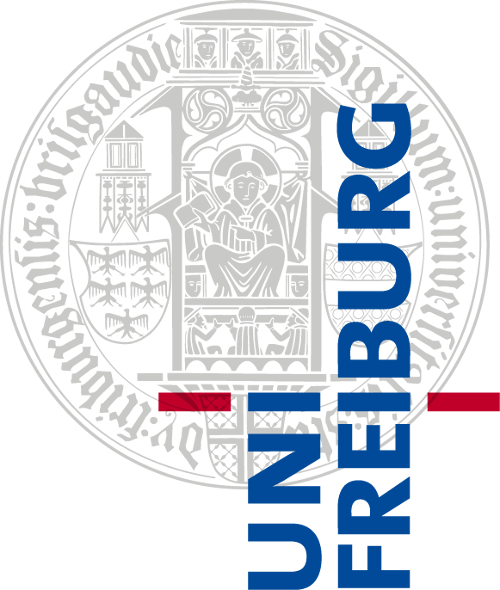
The hormone auxin accumulates in the area of the seed where the embryo is connected to the maternal tissue. Source: Thomas Laux
An international team led by the Freiburg plant biologist Prof. Dr. Thomas Laux has shown that mother plants guide the development of their embryos using the hormone auxin. In the future, this result might help breeders grow plants that are more resilient in the face of environmental challenges. The researchers published their study in the journal Nature Plants.
When embryos develop inside their mother, their well-being depends on the nurture provided by the maternal tissue. Mutations in the maternal tissue may result in defective embryo development. In seed-bearing plants such as grains, the embryos develop in unison with the surrounding tissue of the mother plant. Laux and colleagues therefore posited that there must be a form of communication between the mother plant and the embryo that guides the early stages of development after fertilization.
Show more.
Chulmin Park, doctoral researcher in the group of Laux, observed in pollinated flowers of the model organism Arabidopsis that the hormone auxin accumulates in the area of the seed in which the embryo is connected to the maternal tissue. Auxin is used by plants to control a variety processes ranging from organ development to defence against pathogenic microbes. The Freiburg biologists have shown that embryo development is disturbed when the production of auxin by the maternal cells is blocked. However, artificial activation of auxin biosynthesis in the embryo cells, which are normally unable to produce this hormone in early stages of development, allowed the embryos to develop normally without a maternal auxin supply. With these results, the researchers demonstrated that mother plants use this signalling molecule in order to communicate with their offspring and guide the earliest stages of their development. Since they made similar observations in maize, the researchers speculate that the mechanism they discovered may be widespread in plant species.
This finding could also contribute to the optimization of biotechnological plant propagation. “Plants could be bred faster and more efficiently so that they can adapt to unfavourable environmental conditions and climate change, for example”, Laux explains.
Show less.
Thomas Laux heads a laboratory at the Institute of Biology III and is a member of the BIOSS Excellence Cluster of the University of Freiburg.
Institute of Biology 3
University of Freiburg
Schänzlestraße 1
79104 Freiburg, Germany
Director
Prof. Dr. Wolfgang HessTel.: 0761-203-2796
Fax: 0761-203-2601
e-Mail: wolfgang.hess@biologie.uni-freiburg.de
Vice-Director
Prof. Dr. Wolfgang SchamelTel.: 0761-203-67511
e-Mail: wolfgang.schamel@biologie.uni-freiburg.de
Administration
Academic Director
Karsten VoigtTel.: 0761-203-6975
e-Mail: voigt@bio.uni-freiburg.de
Office
Diane KaltenbachTel.: 0761-203-2741
e-Mail: kaltenbach@biologie.uni-freiburg.de
Karin Laubenberger
Tel.: 0761-203-2742
e-Mail: karin.laubenberger@biologie.uni-freiburg.de
Marina Heitzmann
Tel.: 0761-203-2731
e-Mail: heitzmann@biologie.uni-freiburg.de
IT-Office
Edith AmsÉric Antoine
Tel.: 0761-203-2759
e-Mail: it.bio@biologie.uni-freiburg.de
Research groups
Prof. Dr. Ralf Baumeister
Prof. Dr. Ilka Diester
Jun. Prof. Dr. Sjon Hartman
Prof. Dr. Wolfgang R. Hess
Prof. Dr. Maja Köhn
Prof. Dr. Thomas Laux
Prof. Dr. Christian Leibold
Prof. Dr. Björn Lillemeier
Prof. Dr. Carsten Mehring
Prof. Dr. Susana Minguet GarcÍa
Prof. Dr. Michael Reth
Prof. Dr. Stefan Rotter
Prof. Dr. Wolfgang Schamel
Dr. Ekkehard Schulze
Dr. Claudia Steglich
Prof. Dr. Annegret Wilde
Retired and former members
Prof. Dr. Ad Aertsen
Prof. Dr. C. Bresch
Dr. P. Emschermann
Dr. R. Gross
Prof. Dr. Günter Feix
Prof. Dr. Karl-Friedrich Fischbach
Prof. Dr. R. Hausmann
Prof. Dr. R. Hertel
Prof. Dr. K. Hilse
Dr. Gabor Igloi
Dr. W. Michalke
Dr. M. Neumann
Prof. Dr. Edward Pearce
Prof. Dr. Bodo Rak
Prof. Dr. Albrecht E. Sippel










